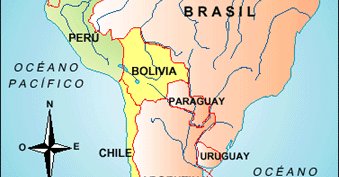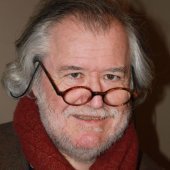How do you perceive the blocks and stoppages that have occurred since 2005 in the process of political unification of Europe, and how can they be got over?
After the French and the Dutch “no”, I think that the European unification process is not definitely blocked but it is only one phase in the process. For many historical reasons Europe was built from top to bottom, thanks to the efforts and decisions of some remarkable statesmen, such as Jean Monnet, Robert Schuman, Alcide de Gasperi or Konrad Adenauer. Now the challenge for those who love Europe and are eager to achieve a complete federal union is, as soon as possible, to bridge the gap between the citizens and European institutions. In my opinion, from now on the process of European unification must entail the participation of the citizens, otherwise it is bound to fail.
the challenge for those who love Europe is to bridge the gap between the citizens and European institutions
Such is the challenge for European federalists, in the best tradition of Altiero Spinelli (whose Ventotene Manifesto has just been published in Spanish). The outcome of the process should be a continental referendum in which the will of every European citizen will have the same weight, without conditioning from the governments nor any possibility of blocking the decisions of a majority of states and citizens by some kind of national right of veto.
I think that such a referendum should lead to the exclusion from the common market and from the benefit of European funds for the countries whose citizens would be opposed to the process of political unification, for it is not acceptable that a country such as Ireland, which has received extraordinary benefits from its adhesion to the EU, becomes an opponent to unification.
What about the attempts towards regional unification in Latin America?
There are (and there have been) too many initiatives but little clarity and few actual results. Today we have, first, the Mercosur (Argentina, Brazil, Paraguay and Uruguay, with Chile and Venezuela as observers). It is basically an economic union, but after more than twenty years in existence there is no unified common market, no common tariff, no common currency. Mercosur is especially weak in its institutions. Its Parliament is not elected directly and has no legislative power; the conflict between Argentina and Uruguay about the cellulose producing installations on their border has been a perfect demonstration of the incapacity of Mercosur to establish an environmental legislation and negotiate a rational solution to the problem.
On the other hand we have the “Communidad Andina de Naciones” (CAN) which includes the states lying between the Andes and the Pacific Ocean (Bolivia, Columbia, Ecuador and Peru). The situation inside the CAN is even worse than in Mercosur, and even the Venezuela of Augusto Chavez has got out of it.
Finally, on the political side there exists a Latino American Parliament, the Parlatino, in which all the states from Mexico to Argentina are represented, which deals with political and environmental issues and the rights of man; it has only a consultative role and is not directly elected.
The old promoters of a process of regional unification have reached a dead-end. Fortunately there is a new initiative, the “Uniòn de Naciones Sudamericanas” (UNASUR) launched a few months ago under the leadership of Brazil and which aims at the unification of all the countries of South America. As for Mexico, it has decided to join the North American Free Trade Agreement. I hope that the Brazilian intentions will be firm and that Argentina, which is the second important nation in this context, will change its nationalistic and isolationist habits, and that should lead to the success of this new initiative.
What stepping stones and methods could allow us to progress towards the objective of a Parliamentary Assembly of the United Nations (UNPA) to which you are closely associated? How could it favour or boost international democracy? And, finally, do you have new proposals to submit to federalists?
Certainly it is a fundamental issue; but the ways and means to a world-wide institution of democracy are infinite and unknown. Perhaps we may achieve it through the extensions of continental and regional democracies on the model of the EU, but we cannot exclude a priori that a multipolar world split into four or five huge continental political units may prove even more dangerous than today’s Pax Americana.
In my opinion, in this context two complementary strategies should be developed. An institutional strategy from the top to the base (top down) and a strategy of popular participation starting from the base (bottom up). In the first case I believe that the best current initiative is the campaign for the creation of a UNPA that is being developed by the coordinated actions of the Committee for a Democratic United Nations, the World Federalist Movement and other NGOs in the whole world, including Democracia Global in Argentina. Already more than 500 representatives or deputies of over eighty-four countries have signed the petition for UNPA, and the campaign is just starting.
The second stage will be the approval of the petition by a majority of national or regional parliaments in the world. In Argentina we made a start in this direction; the Canadian Parliament, the European Parliament, the Parliament of the African Union have approved the principle of a UNPA, the Commission of political affairs of the Latino American Parliament has equally unanimously adopted my proposal on this subject. Mr Boutros Boutros-Ghali, former General Secretary of the UN will present the petition to the present Secretary General within two or three years as we hope and the General Assembly will then discuss it and will, it is hoped, decide the creation of the UNPA. The Security Council or its members will not be able to oppose a veto, the UNPA being, according to the charter of the UN, established by the General Assembly, and only by the authority of the General Assembly.
If we reach this point we shall be for the World at the level achieved by the European Parliament in the fifties with the creation of the Parliamentary Assembly of the European Coal and Steel Community (ECSC). There will be a non-permanent parliamentary advisory group designated by national Parliaments which will deal exclusively with world issues, such as global warming, nuclear dissemination and even the democratic reform of the UN, etc.: all the problems that national states and existing international institutions and national states are totally incapable of solving.
At the same time we must create a planetary mobilization from the base to the top which will permit to avoid the error which has been committed in the process of creation of the EU, that is to say the tremendous abyss which now separates citizens from institutions. I think that there are many initiatives on global questions which are of utmost importance for the life and subsistence of world citizens: peace, ecology, international financial stability, the fight against pandemics and extreme poverty. There are, too, non-governmental actors such as NGOs and private citizens who fight against the plundering and depletion of the planet resources. Finally we have the extraordinary experience, even though it is very limited, of the World Social Forum.
It is the reason why I proposed at the Porto Alegre WSF the creation of a yearly Forum of World Democracy, meeting successively in various cities of the world, where the main political leaders of the world, the organizations of the world civil societies and interested intellectuals could openly debate under the eyes of the citizens of the world the necessity to “globalize democracy and democratize the globe” and discuss and evaluate adequate strategies with the participation, for example, of Nelson Mandela, Kofi Annan, Michael Gorbachev, Bill Clinton, Al Gore, Felipe Gonzales, Ricardo Lagos, etc.; representatives of Green Peace, Amnesty International, Transparency, Oxfam, Médecins Sans Frontières, etc. and also Jürgen Habermas, David Held, Edgar Morin, George Monbiot, etc. who would converse under the eyes of BBC, CNN, Al Jazeera, etc.
The complementary effects of the setting up of the UNPA, the democratic development of regional organizations, the active mobilization of the citizens of the world could create an impulse, a momentum towards the realization of a more peaceful, just and democratic world-order.
What do you think of the Return Directive recently adopted by the European Union? What can we think of the climate in many countries of the EU concerning this problematic and, according to you, what is its negative impact on the relations between Latin America and the EU?
The question of extra-community people is, in my opinion, one of the central problems of modern politics. The attitude of each human community towards its “foreigners” is the best definition of what level of civilization a people, a country, a continent may have succeeded in developing. For this reason the criminalization of illegal immigration is perhaps the most erroneous and mistaken, anti-humanitarian policy of the history of the EU. Fortunately I have also heard Europeans speak of the “Directive of shame”, which means that there still exist in Europe progressive and democratic forces that repudiate it.
The attitude of each human community towards its foreigners is the best definition of what level of civilization a people may have succeded
Europe was born on the principles of the universal and equal rights of man, but also on the idea of the abolition of frontiers. Indeed the “Directive of shame” is entirely contrary to the best traditions of a United Europe and its Founding Fathers.
During the most difficult periods of European history, Latin America has been a place of asylum for European refugees. In my own country, Argentina, many Spanish Republicans after the Civil War, many anti-fascist Italians, many French people fleeing from the occupation, or as is less known, many anti-nazi Germans, could find safety and work. Then you can imagine their reaction and the reaction of their sons and grand-children when they heard that Europe, which was peacefully united in democracy after the war, had taken the decision that an immigrant, even illegal, was a criminal.
It is in this context that the Parliament of Mercosur and the Parlatino, which represent all the people from Mexico to Argentina, have expressed their rejection of the “Return Directive” and appealed to the best democratic traditions of Europe to demand its abrogation.
The original article was published on The Federalist Debate, n. 1, 2009.


1. On 28 April 2009 at 17:42, by Billion Jean-francis Replying to: Federalism and International Democracy in Latin America and the World
Replying to: Federalism and International Democracy in Latin America and the World
Hi everybody,
for your information this interview of Fernando IGLESIAS, by Jean-Luc PREVEL and myself, was initially first published in the French quaterly review FEDECHOSES - Pour le fédéralisme, Issue N° 142 in 4 Th. Quater 2008, Lyon, France.
You can also find it our our website:
www.pressefederaliste.eu
Rgds to all.
Follow the comments: |
|
